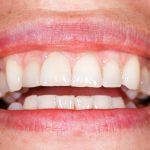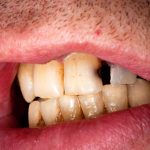Fascinating Facts about Neonatal Teeth
When you think of a baby’s mouth, most people think of the sweet, gummy smile that babies give for the first time.
In toddlers, a mouth filled with a variety of teeth—all varying in shape in size—are just as cute.
However, can you imagine your astonishment as a new parent if you lay eyes on your tiny newborn for the first time and notice they have teeth already?!
Known as neonatal teeth, this dental phenomenon is both rare and filled with folklore and many superstitions around the world. It’s estimated that natal and neonatal teeth happen as often as one out of 1,000 babies or as seldom as one out of 30,000. Studies have shown that about 85% of natal or neonatal teeth are mandibular primary incisors (the two front teeth on the bottom), and much smaller percentages are supernumerary (top) teeth.
It’s common for neonatal teeth to occur in pairs. Many times, these teeth develop without a root, which causes them to be much more unstable than other teeth. These teeth are often extracted as a consequence. The permanent teeth should be unaffected by extraction of the primary tooth.
What are popular takes on neonatal teeth?
Due to the rarity of neonatal teeth, countries around the world have long believed that there is a deeper meaning to their presence. For example, in Malaysia, their presence is thought to bring good fortune. In China, on the other hand, children born with natal teeth are considered bad omens.
For a rather poetic reference, William Shakespeare made note of neonatal teeth in King Henry the Sixth. He wrote, “Teeth hadst thou in thy head when thou wast born to riguity thou camest to bite the word.” Today, the British believe that being born with this rare condition will lead to conquest of the world.
Can there be complications with neonatal teeth?
While seeing a tiny baby grin with a mouthful (or more accurately a couple) teeth might seem cute, but there are some dental complications that can occur with neonatal teeth. For instance, Stanford Children’s Hospital has found that they can lead to difficulty breastfeeding, which can be incredibly dangerous for young infants if they are not getting this form of supplementation.
Another serious concern dentists talk about is that the baby may accidentally inhale and swallow the tooth or have it become lodged in their throat. Since the roots are not as strong as teeth that erupt on a normal schedule, this is a real possibility.
Treatment plans for natal teeth vary. In deciding whether to maintain these teeth or extract them, several factors should be considered, such as:
- The implantation of the tooth and degree of mobility
- Inconveniences during suckling
- Interference with breastfeeding
- And the possibility of traumatic injury
Health professionals also advise that it’s important to wait until your newborn is at least 10 days old before extracting. This waiting period is due to the need to wait for the bacterial flora of the intestine to become established and to produce vitamin K, which is essential to protect your babe from infection. Whatever the case may be, it’s important to discuss all options with your medical provider before making a decision.






